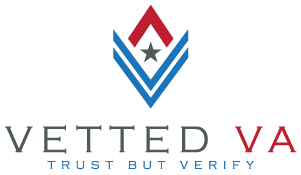When the CARES Act was signed into law in March 2020, it brought welcome relief to millions of homeowners affected by COVID-19 — including veterans and service members with VA-backed mortgages.
But with that relief came confusion. Terms like forbearance and payment deferral began circulating online, often without full explanations or context.
As Vetted VA professional Scott Schang warned early in the pandemic:
“Our fear is that homeowners may knowingly or unknowingly take a mortgage forbearance without actually needing it — and without understanding what happens next.”
Let’s clear up the facts about mortgage forbearance, how it works, and what veterans should consider before using it.
What the CARES Act Changed About Mortgage Forbearance
Under the CARES Act, any homeowner with a federally backed mortgage — including VA, FHA, USDA, and Fannie Mae/Freddie Mac loans — could request forbearance if they experienced hardship due to COVID-19.
Servicers were encouraged to:
-
Waive late fees and penalties,
-
Suspend reporting delinquencies to credit bureaus, and
-
Offer forbearance without requiring proof of hardship.
This was a major shift — and while it helped millions stay in their homes, it also opened the door to misuse or misunderstanding of what forbearance really meant.
What Is Mortgage Forbearance, Really?
Mortgage forbearance is a temporary pause or reduction in your mortgage payments during a period of hardship.
It’s not forgiveness or cancellation — it’s simply an agreement with your loan servicer to postpone payments and repay them later.
The standard CARES Act forbearance term was:
-
Up to 180 days, with the option to request one 180-day extension.
You can request forbearance by contacting your mortgage servicer — their contact information is on your monthly mortgage statement.
How Long Does Forbearance Last?
Most forbearances issued under the CARES Act lasted 90 to 180 days, though homeowners could request extensions depending on their situation.
Each servicer set its own documentation and approval process, but all federally backed loans were required to follow the same baseline protections under the law.
What Happens When Forbearance Ends?
Here’s where confusion caused the most trouble. Once your forbearance period ends, the missed payments don’t disappear — they must be repaid or deferred.
To bring your loan current, you’ll need to reinstate the loan. This means catching up on missed payments through one of several approved methods.
During forbearance, you cannot refinance or sell using that loan until it’s reinstated or resolved through a repayment plan.
Repayment and Reinstatement Explained
When your forbearance term expires, you and your loan servicer will determine how to make up the skipped payments.
Reinstatement means you’ve repaid all missed payments and the loan returns to its original schedule.
“All forbearance programs require reinstatement to bring the loan back into good standing,” Schang explained. “Until that happens, you can’t refinance.”
Example: 90-Day Forbearance Repayment
If you skipped three months of $1,500 payments, you’ll owe $4,500 at the end of the forbearance period — in addition to your next regular payment.
That can create significant strain for borrowers still recovering financially, which is why multiple repayment options exist.
Options for Paying Back Missed Payments
Not every borrower can afford a lump-sum catch-up. Fortunately, servicers now have several alternatives to help homeowners return to good standing.
1. Forbearance Extension
The CARES Act allowed an initial 180-day forbearance with one 180-day extension upon request.
2. Repayment Over Time
Some servicers allow borrowers to add a small portion of the missed payments to each monthly payment until fully repaid.
3. Payment Deferral
If your loan is owned by Fannie Mae or Freddie Mac, you may qualify to move the skipped payments to the end of your loan term. These payments become due only when you sell, refinance, or transfer ownership.
4. Deed in Lieu of Foreclosure
If repayment or modification isn’t possible, some servicers may offer a deed in lieu of foreclosure — also known as “cash for keys” — to help you exit the property without foreclosure on your record.
Each option depends on your loan type, servicer policy, and hardship documentation.
The Real Risk: Forbearance Without Understanding
Because forbearance was widely advertised during the pandemic, many borrowers entered it unnecessarily.
The danger?
-
Paused payments can delay refinancing or new purchases.
-
Missed payments still accrue interest, even if late fees are waived.
-
Reporting errors can still appear on your credit if not managed properly.
“Forbearance isn’t a free pass,” Schang cautioned. “It’s a lifeline for those who need it — but it must be used carefully and with full understanding.”
If you didn’t truly need forbearance, contact your lender to resume payments as soon as possible and avoid extended hardship documentation later.
Where to Get Help From Trusted VA Professionals
Whether you’re in forbearance, just exited, or unsure how to catch up, connect with a Vetted VA professional. These experts are trained in:
-
VA loan servicing and reinstatement rules,
-
Loss mitigation and repayment plan structuring, and
-
Post-forbearance refinance eligibility.
You can find trusted professionals through the Vetted VA map or private Facebook Group, where verified experts share compliant, fact-based answers every day.




